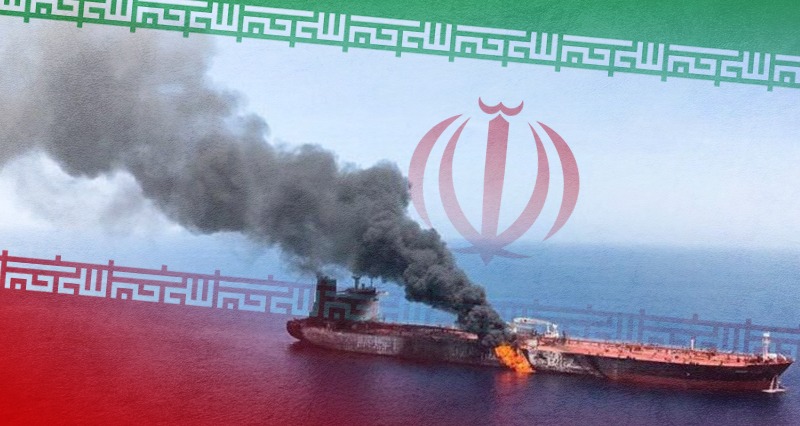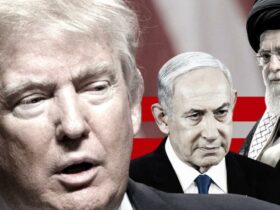An explosion ripped through the Sabiti, an oil tanker of the National Iranian Oil Company (NIOC), at 05:20 on October 11 in the Red Sea, 60 nautical miles to the southwest of Jeddah, Saudi Arabia, supposedly after a missile strike, Iranian media reports said minutes after the incident. Two of the tanker’s reservoirs sustained serious damage and some amounts of oil leaked the waters of the Red Sea. The crew managed to stop the leak and none of its members were injured.
Virtually minutes after the incident, the Iranian media said the Sabiti had been hit by missiles and the incident was an outright terrorist act.
The #SABITI was reportedly hit around 5 am local time (02:00 GMT), reports say. Our playback video shows the movements of the nearby traffic before and after the #Iranian tanker opened its #AIS. pic.twitter.com/IyME9XAbJe
— MarineTraffic (@MarineTraffic) October 11, 2019
WHAT IS KNOWN ABOUT THE EXPLOSION
NIOC issued a statement later saying the Sabiti had sent sixteen S.O.S. signals but none of the regional countries came to its rescue or responded to the call for help. “No regional maritime administration responded to calls for assistance by MT Sabiti,” Iran’s Ports and Maritime Organization said, adding that it found the absence of reaction on the part of Red Sea littoral countries to be “in contrast and violation of international customary requirements, as well as humanitarian principles.”
At the time of the disaster, after the Iranians had not received a single response to their signals about distress on high seas, they decided to send a special message on attack to the Egyptian and Sudanese maritime rescue coordination centers, and to the port of Jeddah.
According to NIOC, executives of Bender Abbas port in Iran later made a telephone call to counterparts in Jeddah and informed them on the incident once again, but the Saudi executives answered they had not received any distress signals. They also sized up NIOC’s report as an overstatement on the scale of the calamity.NIOC said Jeddah port officials promised to investigate the situation and to come up with a response but no answer followed on their part.
A spokesman for Saudi Arabia’s General Directorate of Border Guard said the captain of the oil tanker had notified the directorate on a blast in the foreside of the ship but did not react to the attempts to contact him. Analysis of information prompted the coordination center to conclude that the tanker had continued moving ahead and had moved to an area 67 miles to the southwest of Jeddah, while the crew had switched off the transponders and was not reacting to the attempts to contact it.
#OilSpill in the Red Sea, leaked from #SABITI – oil tanker damaged on Friday near the Saudi port city of Jeddah. After explosion, the tanker started moving to the South, leaving a long trail behind it. ICEYE #SAR satellite image from 12 Oct, 00:30 AM UTC pic.twitter.com/VNftD4mhmG
— ICEYE (@ICEYEfi) October 12, 2019
TEHRAN’S VERSION
Iranian media said initially the Sabiti had become target of a terrorist attack, but President Hasan Rouhani declared in a televised address to the nation the attack had been carried out by a regional state, not terrorists.
“The attack on the Iranian tanker was an act committed by a country located in the region, not by some terrorists or a grouping, and it will entail consequences,” the Iranian media quoted him.
Rouhani also said the regime in question had received assistance from other countries, which he did not name either. He reiterated the claims that the tanker had been hit by missiles and the Iranian side had video footage of the strike.
Along with it, Iran had the proof that the tanker had been attacked, indeed, Rouhani said, adding: “The parts of the missiles remained stuck inside the tanker and we’re scrutinizing them.”
“The cameras installed on the tanker registered the direction, where the missiles had been launched from relative to the ship,” he said.
“An act of aggression has been committed, and we’re inquiring into what government had a hand in it,” Rouhani said. He added it was ruled out that a single person or a group of people could have done it.
Iranian Foreign Minister Javad Zarif voiced the same interpretation of the incident.
WAS THERE A SAUDI TRACE IN THE ATTACK?
It might seem at first glance that the explosion aboard the Sabiti was Saudis’ work, as they are unable to pardon Iran for an alleged involvement in the recent attacks on Saudi Aramco oil refineries, which dealt a sizable blow to the desert kingdom’s oil industry. The Saudi authorities, however, have failed to present irrefutable evidence of the Iranians’ guilt or prove that the blame for the attacks should really go to Iran. They have only aired tentative charges, claiming the Iranians support the Houthis who might have bombed the Saudi Aramco facilities. Tehran turned these claims down vehemently and offered its own explanations for who might want to unleash an indirect war against Tehran and Riyadh.
#OilSpill in the Red Sea, leaked from #SABITI – oil tanker damaged on Friday near the Saudi port city of Jeddah. After explosion, the tanker started moving to the South, leaving a long trail behind it. ICEYE #SAR satellite image from 12 Oct, 00:30 AM UTC pic.twitter.com/VNftD4mhmG
— ICEYE (@ICEYEfi) October 12, 2019
Naturally, everyone remembers the Saudis’ behavior exactly a year ago when the high-profile assassination of Jamal Khashoggi took place. At first, they denied everything and produced totally absurd versions of the Saudi journalist’s disappearance until the world saw the undeniable evidence of barbaric murder of the Saudi national on the compound of the Consulate General of his homeland. Then the authorities began to release carefully measured portions of truth. But even now that a year since the assassination has passed and the names of the culprits have become known, Khashoggi’s body has not been handed over to his family and the criminals have not faced punishment.
Quite possibly, the Saudi authorities are also acting carefully and with restraint towards Iran, and are keeping silence, like in the Khashoggi case. And yet the version suggesting their revenge on the Iranians for the bombings of oil refineries does not look plausible, as revenge would be highly unpromising for Riyadh for a number of reasons.
In the first place, the Saudi officials offered an immediate reaction to the Sabiti attack. The country’s Foreign Minister Adel bin Ahmed Al-Jubeir said the kingdom had nothing to do with the indicent.
“We did not engage in such behavior at all,” Reuters quoted him as telling reporters in Riyadh. “This is not how we operate and that’s not how we did it in the past.”
“The story is still not complete,” he indicated. “So, let’s wait and find out what happened before we jump to conclusions.”
SAUDI ARABIA DENIES ANY INVOLVEMENT IN IRAN TANKER ATTACK https://t.co/aYCxYrsBWV via @MeanNews247
— Mean News (@MeanNews247) October 14, 2019
Secondly, it would be too reckless to stage acts of revenge at a time when the highest-rank government officials from two countries – Prime Minister Imran Khan of Pakistan and Prime Minister Adil Abdul Mahdi of Iraq – were handing a message from the authorities of Saudi Arabia to Iran and trying to scale down the tensions between Tehran and Riyadh, pressing for fruitful dialogue and the bridging of the gap between the two conflicting countries.
Thirdly, Saudi Arabia is disappointed to a considerable degree with Donald Trump’s policies. It is wary of the role of a cash cow and of buying the useless American armaments and weaponry worth billions of U.S. dollars that cannot protect its territory against the most primitive Yemeni missile strikes. Endless stings and reproaches by the U.S. senators addressed to Crown Prince Mohammed bin Salman have also affected the Saudi vision of their own politics quite notably. That is why the Saudis have decided to change their tactics and political guidelines. Rapprochement with the Russian Federation, an opponent of the U.S., is a graphic manifestation of it. Vladimir Putin’s recent visit to Saudi Arabia and the signing of a range of strategic agreements and contracts proves that the American ideological influence in the Saudi kingdom is declining.
It also deserves noting that on the eve of the Sabiti incident Vladimir Putin voiced the hope that Riyadh and Tehran would find it possible somehow to settle their differences, which do not bring advantages to anyone in the Middle East. Given the situation as it is, the Saudis would gain much more if they heeded the calls from Russia, an influential peacemaker, and to stay away from any conflicts with the Iranians.
FORECAST
U.S.-based globalist formations are the only ones who could be interested in a Saudi-Iranian war. It is important for them to plunge the market of traditional oil dominated by the Saudis into chaos. As for the Iranians, the globalists are trying to wipe them out with the aid of the oil embargo and tough sanctions.
If the traditional oil market collapses, the Americans will easily take over the share of its main actors. They will then be able to sell their shale oil as an alternative to Saudi or Iranian oil at the prices lucrative for no one but themselves. It will go to the countries with an acute need for energy resources.
Consequently, getting full control over the purchasers of Iranian and Saudi oil is the ultimate objective of American oil companies.
If you look at the dynamics of crude prices, you will see how they surged right after the attacks at the Saudi Aramco refineries.
Prices grew after the attack on the Sabiti as well.
Based on everything we have collected so far (including a NASA shot of the area as well as @MarineTraffic AIS data), we do not see any smoke, fire, spills or tugboats. Instead, we see a tanker cruising home at a healthy speed. The news headlines gave the oil price a small boost. pic.twitter.com/tj0UvkAd3K
— TankerTrackers.com, Inc. (@TankerTrackers) October 11, 2019
The U.S. has enough bases in the Persian Gulf countries, where from it can easily trace the movement of Iranian oil tankers. Israel, an ally of the U.S. locked in a tough ideological battle with Iran for as long as forty years, can also give tangible assistance to the Americans.

















Leave a Reply